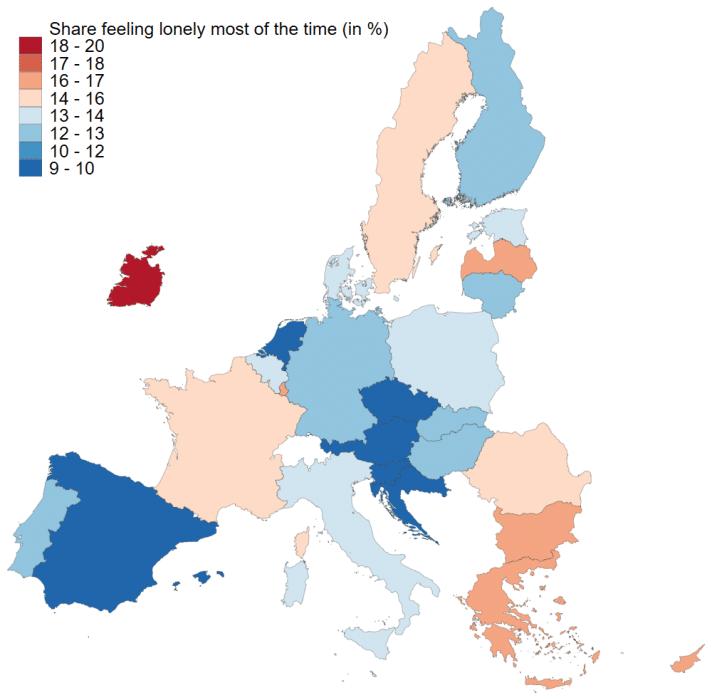
![]()
Ireland has the highest levels of loneliness in Europe. In a survey carried out by the European Commission's Joint Research Centre - Ireland is the only country across the bloc with more than one in five people saying they feel lonely.
Loneliness, has been identified as a serious public health concern and linked to a number of factors, including poor health and low social connectedness
According to data, approximately 13% of respondents report feeling lonely most of the time or all of the time.
However Ireland's rate of loneliness is in excess of a staggering 20% of respondents reporting feeling lonely. Luxemburg, Bulgaria and Greece follow.
The lowest levels are observed in the Netherlands, Czech Republic, Croatia and Austria (all below 10%).
Young people have actually a higher incidence of loneliness compared to older generations. According to data, people who are lonely all or most of the time are about 20 percentage points more likely to suffer from depressive symptoms.

EU - Map_Most Lonely
Similarly, loneliness is linked to poorer physical health outcomes and unhealthy behaviour. It is unclear though to what extent loneliness causes health problems or whether it is the other way around.
The survey shows that intense use of social networking sites is associated with an increase in loneliness, suggesting that social networking sites replace offline relationships with online ones, lacking the intimacy and quality of offline interactions.
The data reveal that 43% of respondents reported being aware of the existence of loneliness interventions, yet large cross-country differences exist.
In three Member States (Lithuania, Portugal and Slovenia), more than 60% were aware of interventions in their country, while in seven countries (Sweden, Romania, Hungary, Belgium, Italy, Cyprus and Bulgaria) 35% or less were aware.
The survey also includes information about people’s views on the role that different actors should play in supporting those who feel lonely in their country. Overall, the great majority (73%) think that individuals and families should play a major role in this regard.
The views about the role of actors vary by both stigma and loneliness status. Respondents who stigmatise lonely people overall tend to believe to a lesser extent that different actors should provide support for lonely individuals. This result demonstrates the harmfulness of social stigma for the development of loneliness interventions.